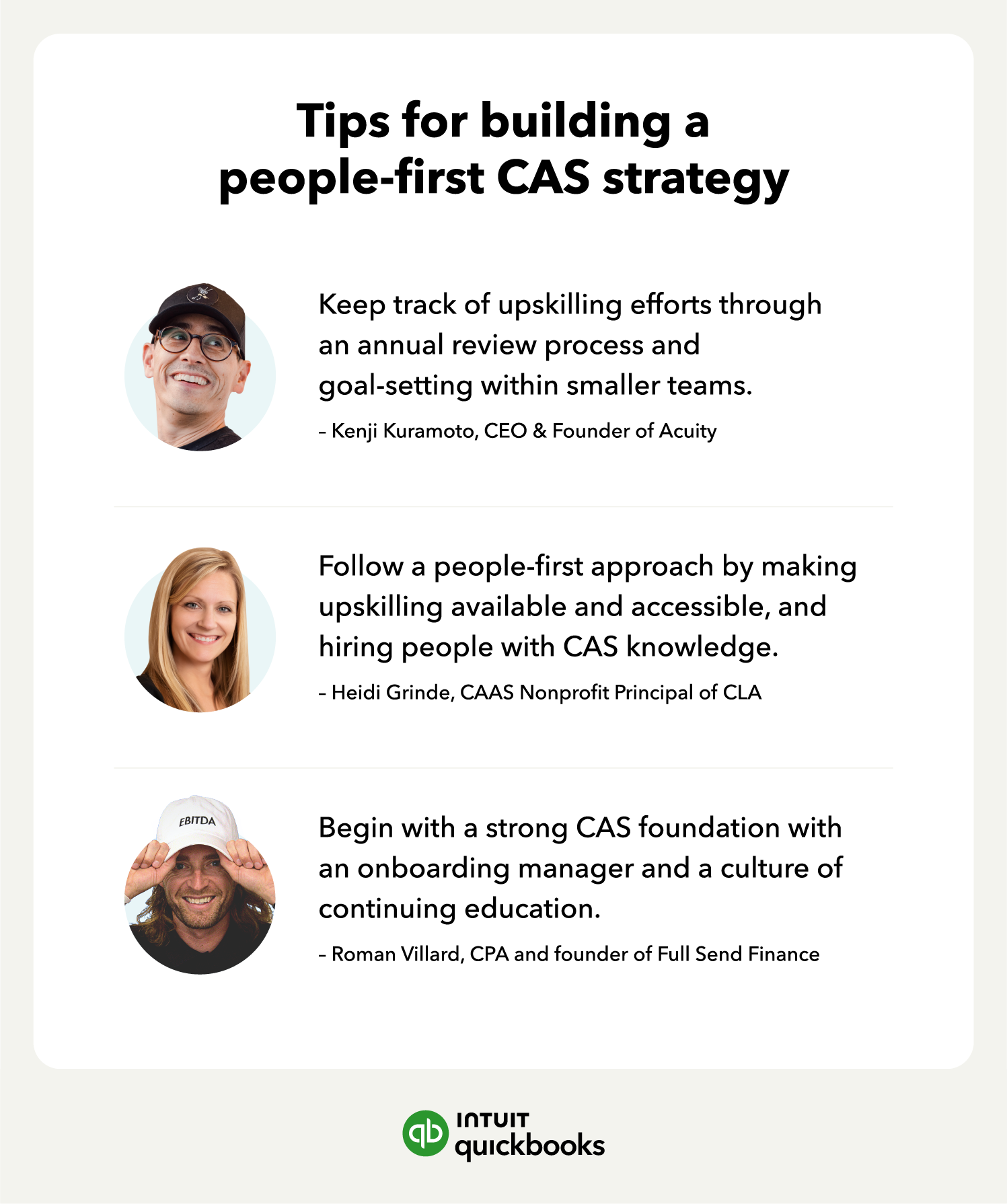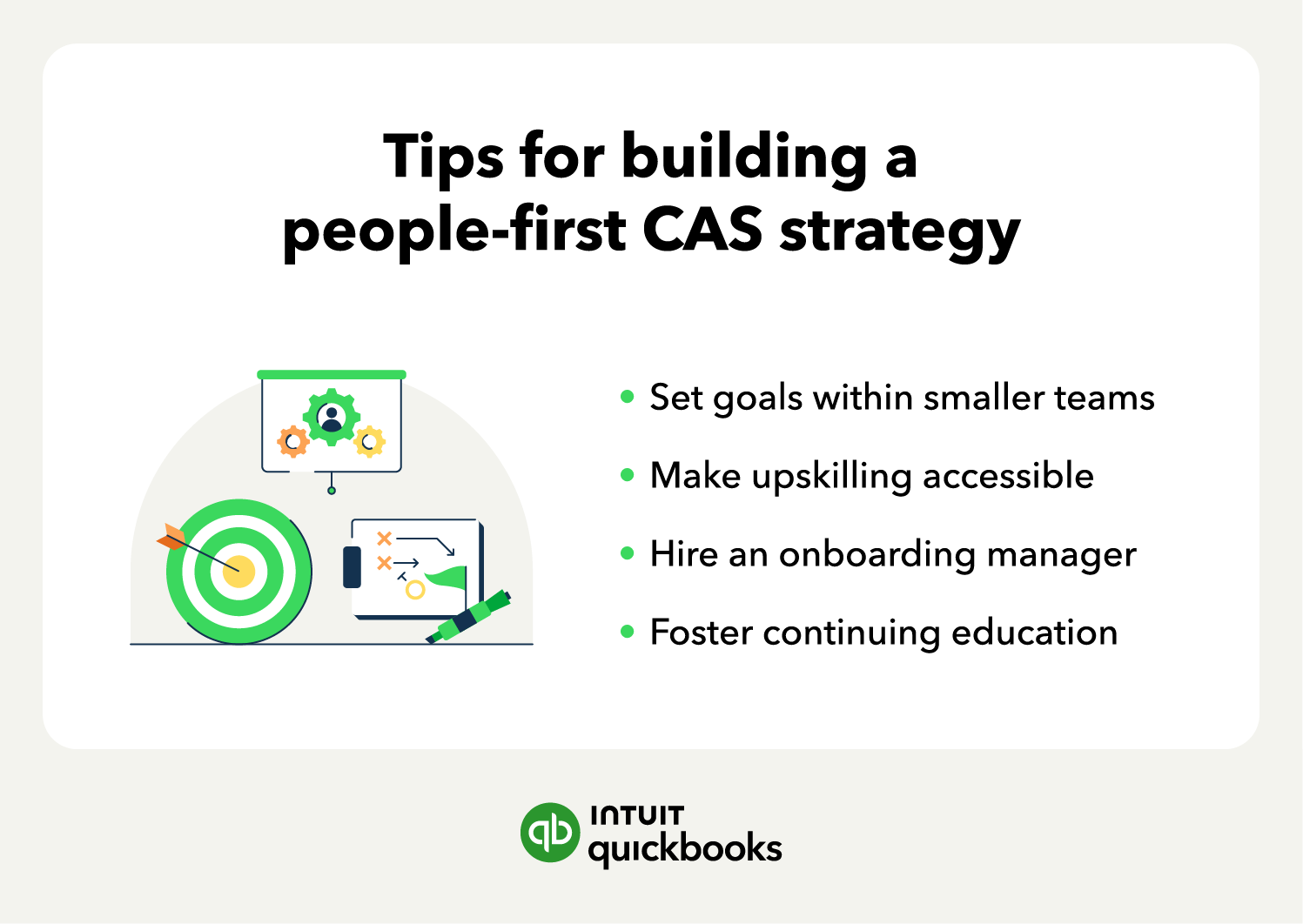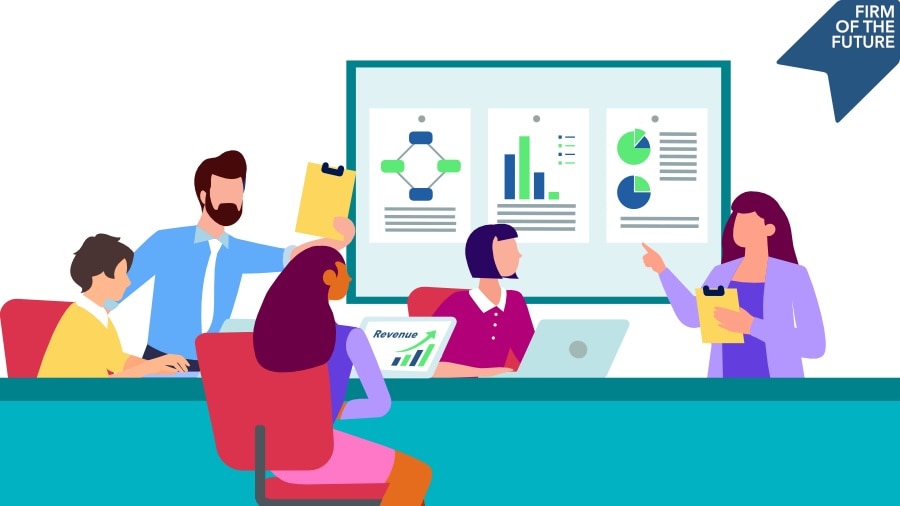In a physical sense, Villard says that Ship Daily also applies to resources. “It means that we are always going to be open to utilizing the absolute best tools—the best systems—for our clients, no matter how challenging a transition may be. If something new comes along, we want to make sure we are doing our absolute best to understand the landscape that we operate in, within our industry, to ensure that we're delivering the absolute best product and service.”
As part of his firm’s company culture of fun and continuous learning, Full Send hosts a yearly company hackathon. “It's very different for a CAS practice to have a hackathon, because you generally think of that as something a development team or a tech company would do. For us, what that effectively means is every team member has a full day, and a full opportunity, to work in different styles and with different people. It's also to ask, ‘What are the areas of my day-to-day work, or with a specific client, that feel really sticky? Or that I feel a lot of friction? And what are some solutions that we can look at to break free of that?’”
For Villard, the event is a hackathon in the sense that he’s asking his team to think critically about ways to improve their current state, whether it’s linked to the work itself, to a client, or even to the firm’s way of doing things.
When asked how he helps his team members grow professionally, Villard says that effort starts during the hiring process. “Ultimately, what we want to understand when we are interviewing and bringing on board any team member, is what their professional and personal goals are. So, professionally, we might ask, Where do you envision yourself in five years? What are the types of clients—the types of industries—that really get you excited?”
Interestingly, most people don’t have a clear idea of where, specifically, they want to go or what types of goals they have for themselves. Villard says some might have a position in mind, but not necessarily an industry or a fully formed idea of the roles involved in that space. “So we try to take that professional goal and then architect their journey as an employee to align with the direction of where they want to go personally, knowing that it will likely change and pivot and flex over the course of their career."
On a personal level, Villard looks at what motivates and drives his team, whether it’s time off, money, or even experiences. He then ties those personal goals back to the firm’s goals—linking business strategy to people strategy.
As a small firm, Villard says his team currently works in 12-week cycles, setting short-term milestones and deadlines. “It's really important for us to ensure that we're revisiting our goals on a more frequent basis than just monthly, quarterly, and annually."





